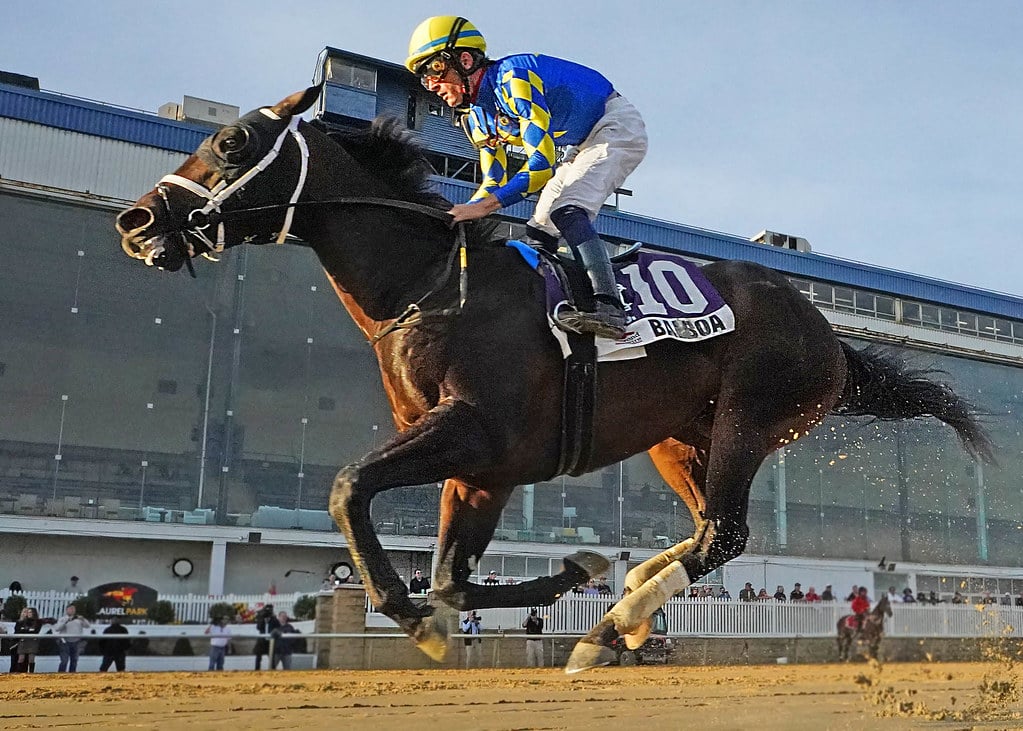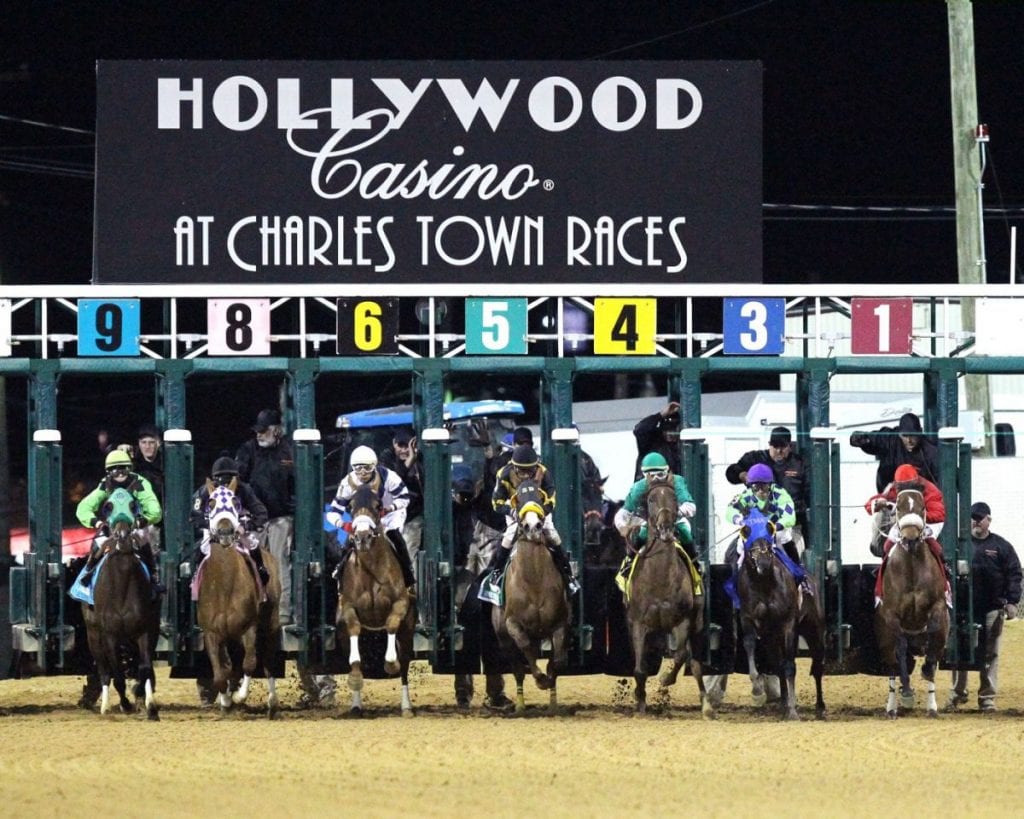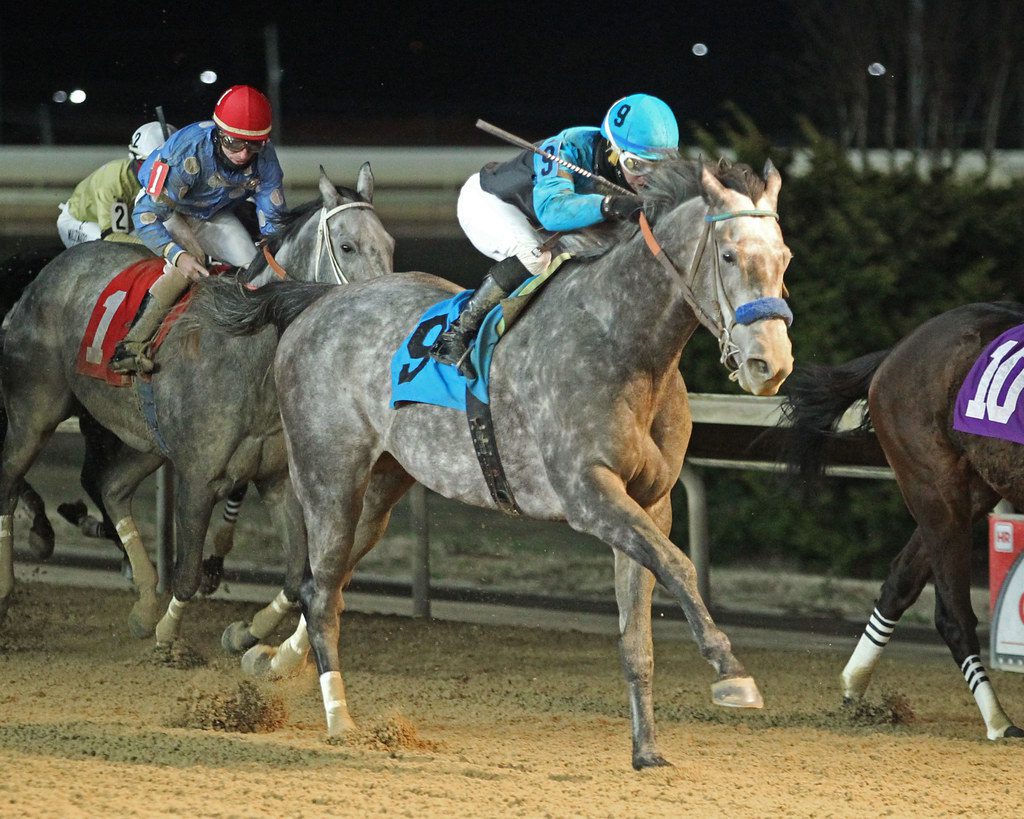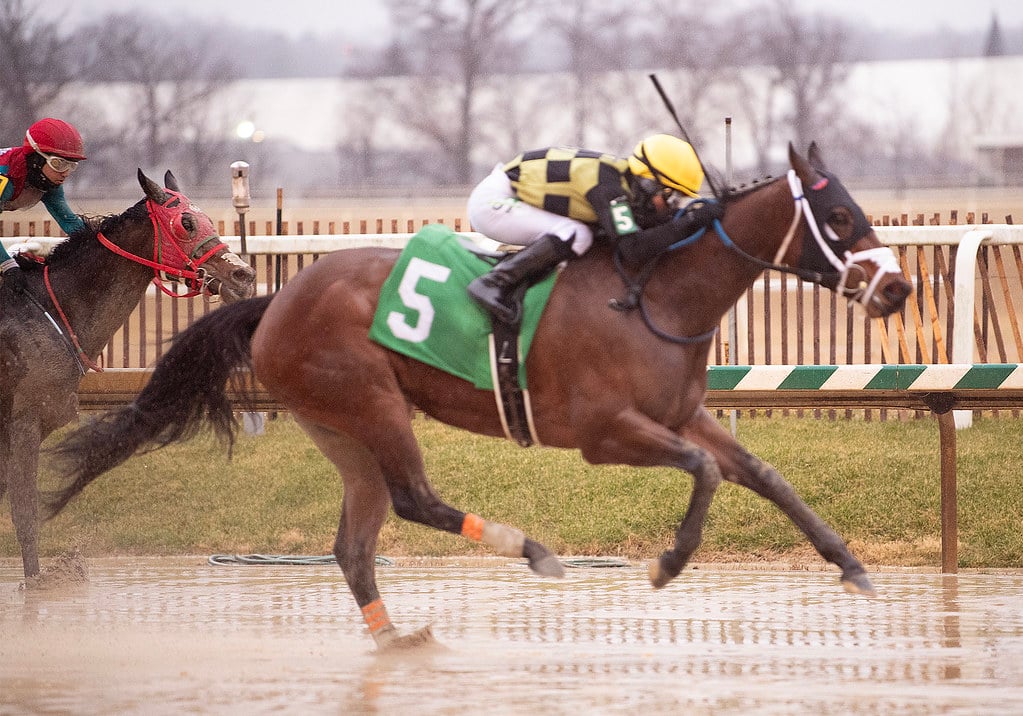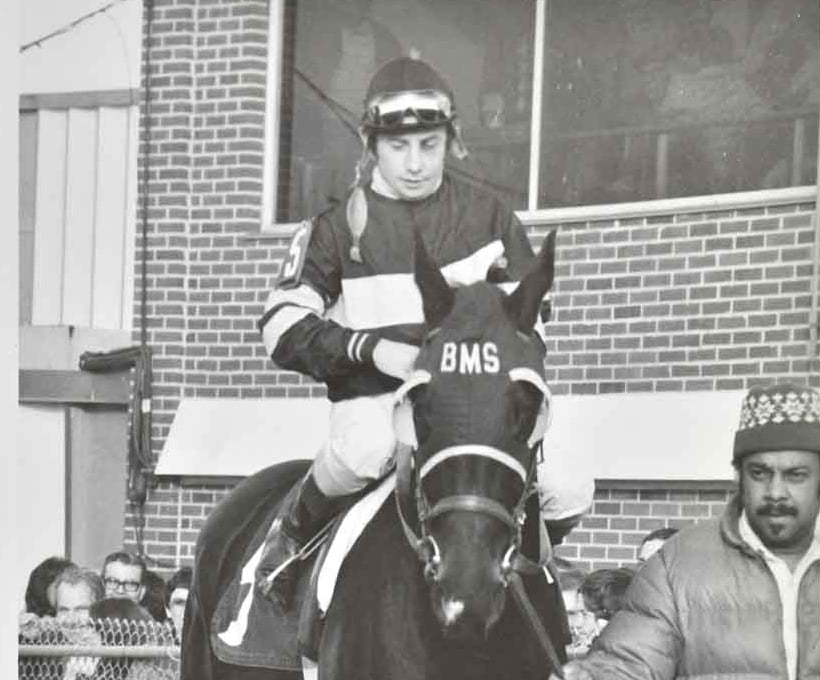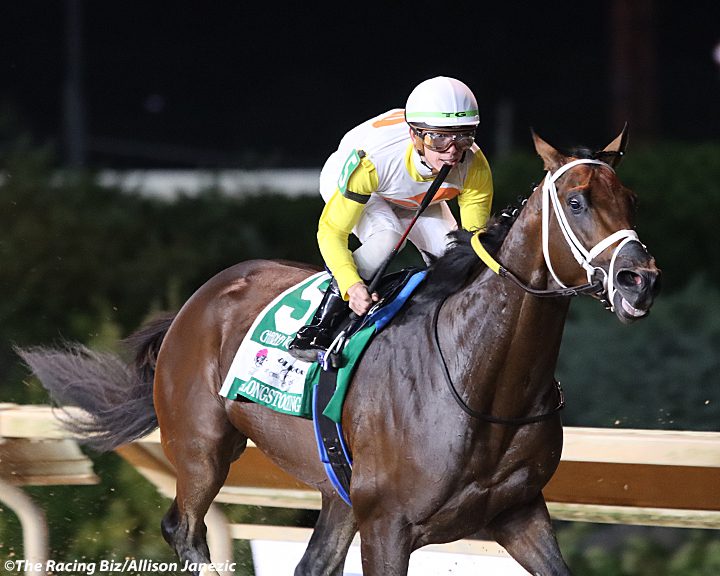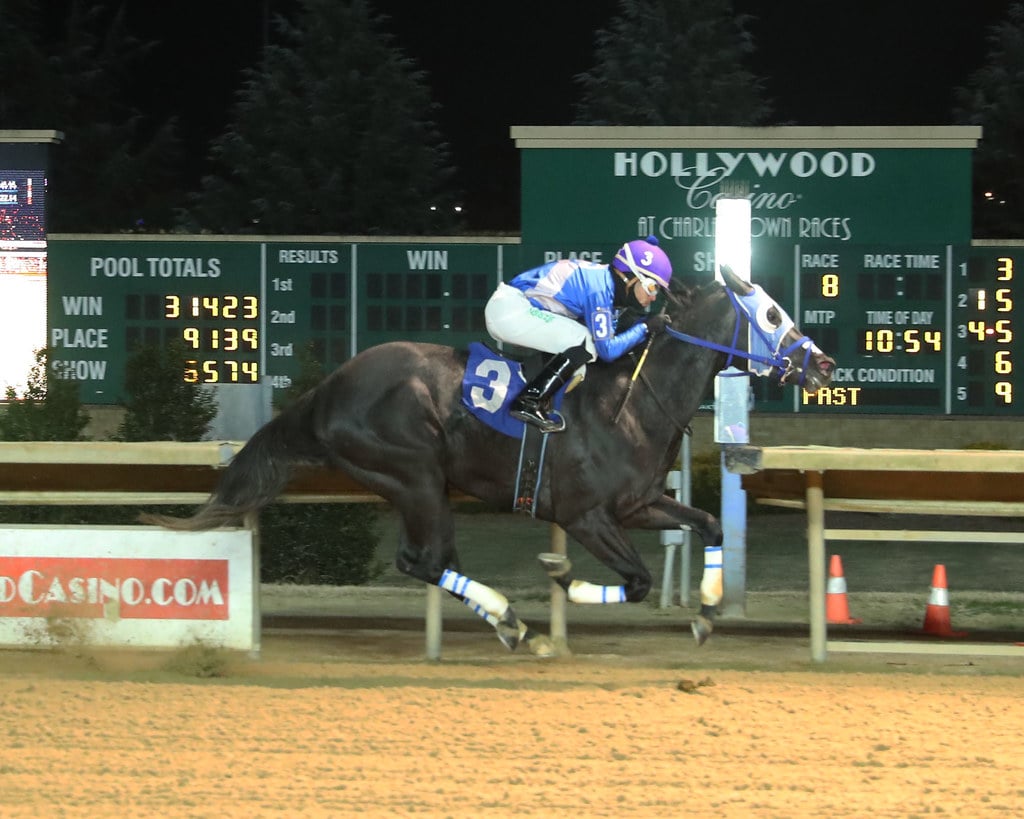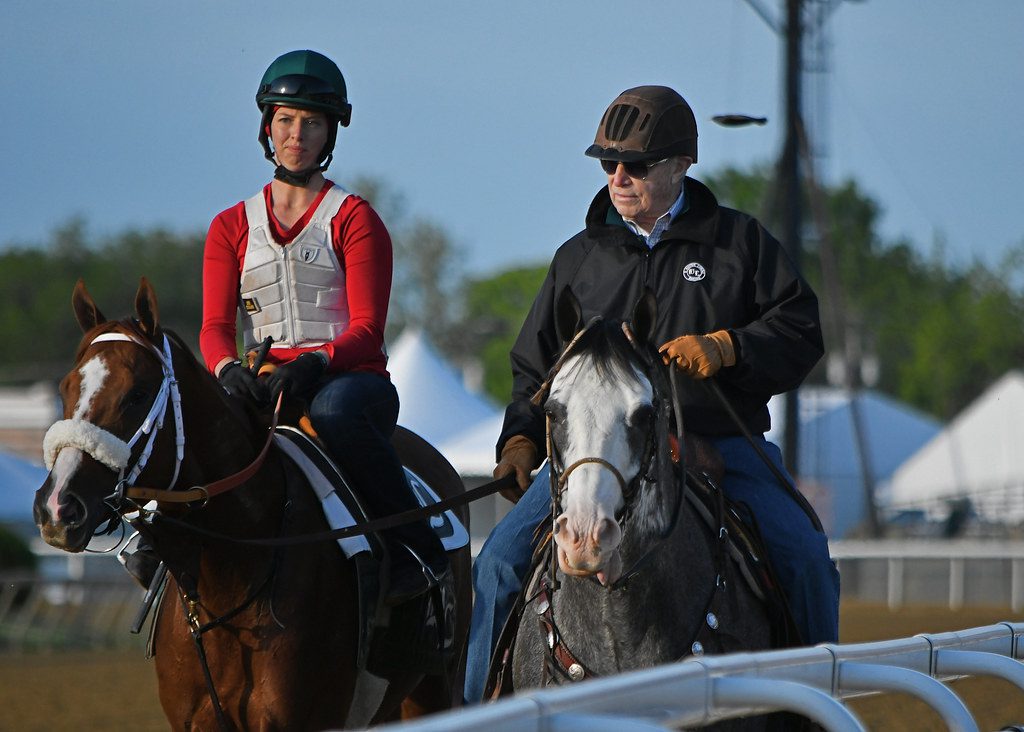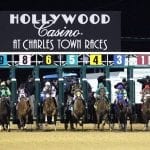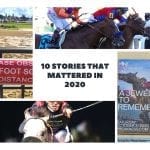10 STORIES THAT MATTERED: RACE AND RACING
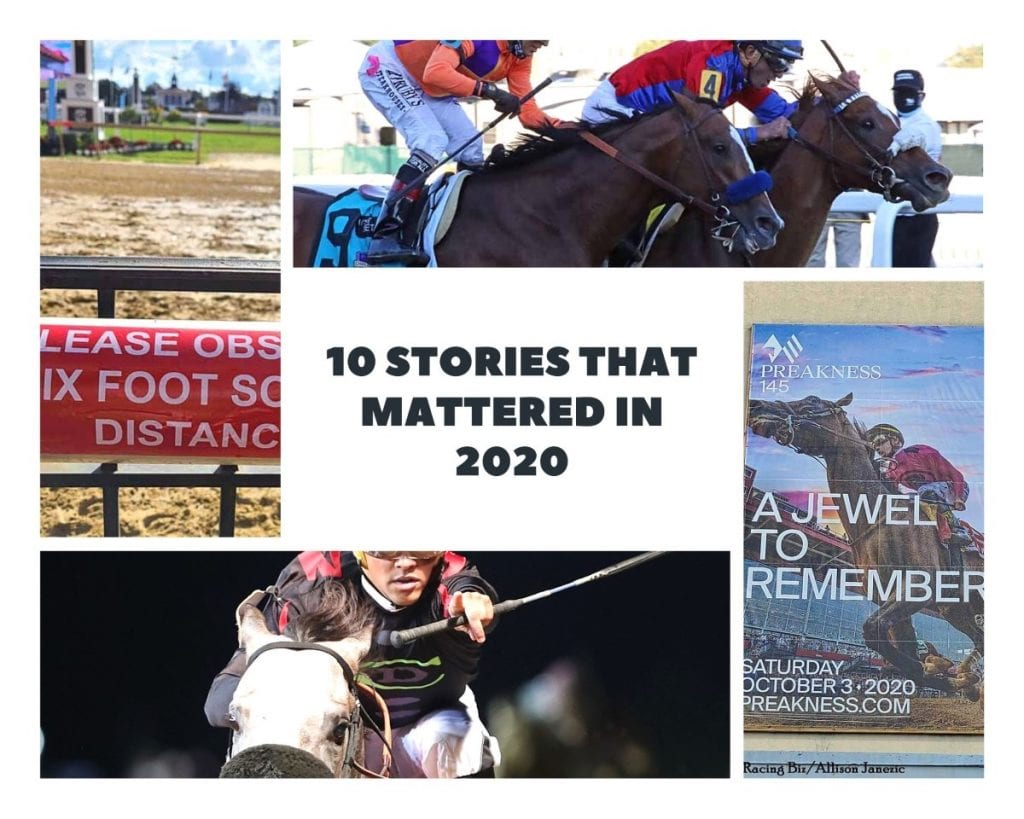
The tired old refrain directed at anyone in horse racing who offers a political opinion – “Stick to horse racing” – never rang more hollow than it did in 2020.
It was the year when the racial issues that have bedeviled America since its founding found purchase in the Thoroughbred industry.
Early in the year, the protests spurred by George Floyd’s death at the hands of Minneapolis police spilled over to a reluctant racing industry. The industry’s response was ragged; some racetrack operators took strong stands, while others remained silent. Some racing organizations issued position papers, while others remained on the sidelines.
Arguably the most conspicuous statement in support of peaceful protests came not from industry leaders but from New York’s jockeys.
It was jockeys Kendrick Carmouche, who is African-American (and who released an emotional video about police brutality in this country) and John Velazquez, who is Puerto Rican, who told NYRA officials that they also planned to take a knee to honor the protestors when the riders were asked to participate in a moment silence to honor those affected by Covid-19,
“In our jockeys’ room, we’ve got people from everywhere, all different colors,” Velazquez said at the time. “It’s about equality and human rights. There’s been so much happening in the last few months, and no one in racing had done anything. It was time for racing to step up to the plate.”
The uneven response was the harbinger of things to come.
Later in the year, as the delayed Kentucky Derby loomed, protests in Louisville over the death of Breonna Taylor – shot by police in her own home in March – flared back up.
Trainer Barclay Tagg – understandably worried about whether protests might affect the backside at Churchill Downs and his horse, Belmont winner Tiz the Law – dropped a turd in the punch bowl with his observation that it seemed to him that “these rioters” were “allowed to shoot you” but that you couldn’t “shoot them.”
STORIES THAT MATTERED
And Churchill Downs issued a tepid statement that the industry wasn’t “doing enough, quickly enough,” which was surely true and also, inevitably, insufficient.
While Churchill took the subsequent half-step of playing an instrumental version of “My Old Kentucky Home” as the Derby horses came on the track – the wildly antiquated words are a slave’s lament at being sold away from the Bluegrass State – the Stronach Group and Maryland Jockey Club spiked the similarly out-of-date “Maryland, My Maryland” altogether.
While what replaced it – a sluggish version of Bob Dylan’s “Knockin’ on Heaven’s Door” — didn’t win many accolades, either, the symbolism of eliminating the Civil War-era paean to rebellion was at least welcome.
- Charles Town: 10 stories that mattered in 2025
 Charles Town correspondent Ted Black revisits 10 stories that mattered at the West Virginia oval in 2025.
Charles Town correspondent Ted Black revisits 10 stories that mattered at the West Virginia oval in 2025.
Finally, as 2020 gave way to the new year, came one last issue of race. Trainer Eric Guillot sent out a horse named Grape Soda – named, he said, in honor of TVG on-air host Ken Rudulph, who is Black. According to urbandictionary.com, grape soda is a drink popular among African-Americans or “a slang term used to describe those inclined to drink grape soda.”
The resultant furor saw Guillot lose his training job for Cypress Creek Equine and the horse’s name changed to Respect for All. It also saw him banned from racing at the NYRA tracks in New York and at tracks owned by the Stronach Group (1/ST Racing). Those include Maryland’s Laurel Park and Pimlico.
It also saw Guillot, publicly at least, unrepentant.
All of which is to say that sticking to horse racing – and ignoring the wider world – became for the Thoroughbred industry an untenable position in 2020. Which, truth be told, is just as well.
LATEST NEWS


